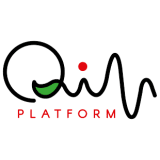This informal CPD article, ‘Dear Teacher, are you exhausted?‘, was provided by Mariana EL Hajj, Health Programs Developer at QIN Platform, who are passionate about transforming education and preparing students for the challenges of the 21st century. They provide innovative education solutions that integrate arts, STEM, health education, and sustainability seamlessly.
Teaching is a gratifying mission. Guiding your students, shaping their minds, touching their hearts, and making a difference in the youth are extraordinary endeavours. Yet, numerous challenges—from diverse learning needs among students to communication and motivation gaps to the burden of paperwork and extended working hours, and the pressure from school administrators—persist. Not to mention the personal life challenges and the struggle with time management.
Teaching is undoubtedly an exhausting career, but before reaching the burnout phase, remember that one cannot pour from an empty cup. Therefore, prioritizing self-care is essential. In this article, we'll explore various strategies and tips tailored to your profession to help you maintain optimal health and well-being.
Nutrition and Energy
Teachers require sustained energy throughout the day to create engaging learning environments. Proper nutrition and diet significantly impact energy levels and overall health. Consider the following dietary suggestions:
- Hydration Matters: Ensure you get enough water daily; it's crucial for your health and performance. Keep a water bottle with you, refill it throughout the day to stay hydrated, and maintain focus. Given that teaching demands being on your feet all day, adequate water consumption keeps your joints lubricated, cushions your spinal cord, and eliminates wastes and toxins.
- Nutritious Meals: Think of healthy breakfast ideas, and pack balanced lunches and snacks with a mix of protein, healthy fats, carbs, fruits, and veggies to provide the necessary fuel for your body. Schools should also prioritize their teachers' well-being. Imagine the positive impact of schools offering healthy snacks like fruits for teachers during meetings, perhaps harvested from trees planted in the school's green area by both teachers and students.
- Limit Sugary Snacks and Beverages: Restrict intake of sugary snacks, sweetened beverages, and excessive caffeine. While low doses of caffeine can boost alertness, excessive consumption can lead to nervousness, restlessness, and headaches.
Physical Activity
Regular physical activity enhances overall well-being. Incorporate movement into your routine and engage with your students in fun ways:
- Healthy Breaks: Introduce short stretching exercises to relieve muscle tension in your neck, spine, hands, and legs. Consider having lessons outdoors while moving in the open air to alleviate any guilt about taking breaks.
- Active Commute: Walk or bike to school for added exercise, or take a stroll during breaks with students instead of remaining in the teachers’ room.
- Participate in School Sports Teams: Enjoy exploring different experiences with your students and colleagues by engaging in school sports teams.
Building Resilience
Teaching is emotionally demanding, requiring resilience.
- Ensure you're getting enough sleep, as good sleep improves brain performance, mood, and overall health while reducing stress. Save time on lesson planning, assessments, and reports with AI tools.
- Incorporate hobbies like physical education or artistic practices into your teaching. Collaborate with other teachers to create integrated lesson plans, fostering joy, satisfaction, and creativity.
- Develop effective time management skills by prioritizing tasks, setting realistic goals, establishing boundaries between work and personal life, delegating tasks, and seeking assistance when needed.
- Cultivate Emotional Strength, Practice self-compassion, be kind to yourself, and acknowledge your efforts.
- Connect with fellow teachers, mentors, or counselors to share experiences.
- Practice Mindfulness, and engage in deep breathing exercises or short mindfulness sessions to ease stress.
In most instances, educators struggle to find free time within their busy schedules to indulge in hobbies. However, consider intertwining your interests with your teaching responsibilities. Art, in its various forms—be it visual art, music, drama, or media art—is universally appreciated. Imagine if the math teacher, amidst a busy schedule, discovers the artist concealed behind mathematical thinking. Similarly, envision humanities or sciences teachers realizing their dreams of performing on stage or dancing.
The solution is straightforward: collaborate with the art teacher to develop interdisciplinary lesson plans. Whether it's a science-art integrated lesson, a language drama integration, or a math-art integration, these initiatives can seamlessly blend healthy practices into your transitions, benefiting both you and your students. Such endeavours promise joy, satisfaction, and an expanded horizon of creativity.
After addressing these teacher-specific health concerns, remember that taking care of yourself unfolds the best educator in you. Prioritizing your health not only benefits you but also positively impacts your students, who view you as a role model. It is time for educational communities to support educators through a more holistic approach.
We hope this article was helpful. For more information from QIN Platform, please visit their CPD Member Directory page. Alternatively, you can go to the CPD Industry Hubs for more articles, courses and events relevant to your Continuing Professional Development requirements.













